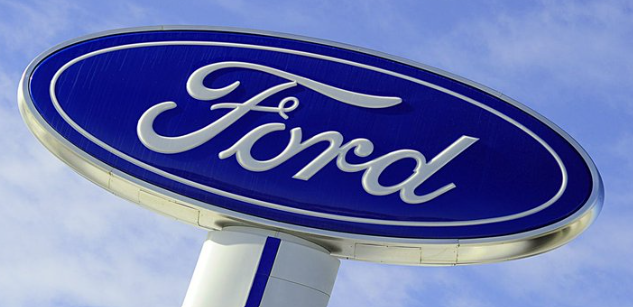The Heritage Foundation: The Heritage Foundation critiques DEI by stating that these initiatives distort traditional American values. They argue that “diversity” has been redefined to mean ideological conformity, “inclusion” to enforce restrictive language codes, and “equity” to promote policies based on race or other immutable characteristics. According to this perspective, DEI is seen as an extension of Marxist goals to enforce equality of outcomes, which contradicts the principles of equality under the law as established in the U.S. Constitution and the Civil Rights Act of 1964 The Heritage Foundation
Ford Motor Company has recently revised its stance on diversity, equity, and inclusion (DEI) initiatives, becoming the latest major corporation to scale back such efforts. In an internal communication shared with employees and later posted online, Ford explained that it had reassessed its DEI policies to better align with the changing “external and legal environment related to political and social issues.” While Ford confirmed the authenticity of the memo, the company declined to comment further on the decision.
Ford Motor Company to scale back DEI policies amid right-wing pressurehttps://t.co/Ks4PG87mvP#transgender #trans #LGBTQ #LGBTQIA
— Transgender World (@jackmolay) August 29, 2024
Ford’s shift follows similar actions taken by other companies, including Tractor Supply and Harley-Davidson, both of which have also curtailed their DEI initiatives in response to evolving social and political climates. Tractor Supply, for example, ended its partnership with the Human Rights Campaign (HRC), an LGBTQ+ advocacy group, and eliminated DEI goals such as increasing the number of managers of color. Harley-Davidson, where Ford CEO Jim Farley serves on the board, also decided to stop consulting the HRC’s metrics for LGBTQ+ employee treatment and affirmed that it does not have a dedicated DEI function.
Home improvement giant Lowe’s announced earlier this week that it might similarly adjust its DEI policies. These companies have often cited conservative backlash or a desire to better align with their customer bases, which tend to lean more rural or conservative.
Liz Hoffman, a business and finance editor at Semafor, suggested on CNBC that there may be a broader trend toward companies adopting a more politically neutral stance, noting that many firms “didn’t really want to be doing this stuff in the first place.”
In its memo, Ford outlined several changes, including a decision not to use quotas for minority-owned dealerships or suppliers and the cessation of its participation in the Human Rights Campaign’s Corporate Equality Index and other “best places to work” lists. The HRC index evaluates over 1,300 companies on LGBTQ+ equality measures, such as offering spousal benefits regardless of gender and community outreach efforts. Ford had previously received a perfect score on this index.
In response to Ford’s announcement, Human Rights Campaign President Kelley Robinson criticized the automaker’s decision, calling it “shortsighted” and warning of potential long-term consequences for the company’s employees and LGBTQ+ consumers. Robinson emphasized that abandoning DEI efforts could negatively impact the workplace environment and alienate customers who value inclusivity.
Despite this shift, Ford emphasized in its statement that it remains committed to supporting its customers, team, and communities and will choose when to speak out on issues that align with its core values. “There will of course be times when we will speak out on core issues if we believe our voice can make a positive difference,” the company noted.
Ford’s recent decision marks a departure from its stance in 2020, when, following the murder of George Floyd and the subsequent Black Lives Matter protests, the company strongly affirmed its commitment to DEI. At that time, Ford pledged to “create the fair, just, and inclusive culture that our employees deserve,” rejecting “superficial actions” and promising to lead in fostering inclusivity.
Ford becomes latest high-profile American company to pump the brakes on DEI
Ford Motor Company joins the likes of Harley-Davidson, Lowe’s and John Deere to scale back diversity, equity and inclusion efforts.https://t.co/Y5YBY3gwdy— Steve Gruber (@stevegrubershow) August 28, 2024
The Supreme Court’s decision to overturn affirmative action in college admissions has contributed to the growing pressure from conservative activists for companies to reduce or eliminate their DEI investments. According to Derek Avery, an industrial and organizational psychologist, conservative state attorney generals have also warned corporations of potential legal challenges if their DEI practices are perceived as conflicting with the court’s ruling, despite the fact that the ruling did not directly address corporate DEI initiatives.
More
- New Discourses: James Lindsay, a prominent critic of DEI, argues that the concepts of diversity, equity, and inclusion are fundamentally tied to Marxist principles. He claims that “equity” is a form of “expanded socialism” aimed at redistributing resources and status to achieve equal outcomes. He further compares “Diversity Officers” to political commissars who enforce ideological conformity within organizations, much like how socialism was enforced in historical contexts. “Inclusion” is also criticized as a tool for enforcing uniformity and censorship, drawing parallels with Maoist strategies for social control New Discourses
- RealClearEducation: This outlet describes “equity” in DEI as inherently collectivist and similar to communist ideologies. It argues that equity seeks to ensure equal outcomes through policies that prioritize group identities over individual merit, which it views as antithetical to American principles of individual rights and equality. The article also suggests that DEI practices, like racial quotas in hiring or admissions, undermine meritocracy and fairness RealClearEducation
Key Points:
i. Ford Motor Company has reduced its diversity, equity, and inclusion (DEI) initiatives in response to changing social and political climates.
ii. The company will no longer participate in the Human Rights Campaign’s Corporate Equality Index or use quotas for minority dealerships and suppliers.
iii. Other companies like Tractor Supply, Harley-Davidson, and Lowe’s have similarly scaled back DEI efforts.
iv. The move reflects a broader trend towards political neutrality in corporate policies, partly driven by conservative backlash.
v. Ford’s decision contrasts with its 2020 commitment to DEI following the murder of George Floyd and the Black Lives Matter movement.
James Kravitz – Reprinted with permission of Whatfinger News



